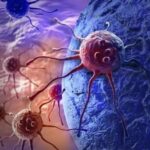The morning is a time for your body to reset after a night’s rest. However, if you frequently wake up with unusual symptoms, it may not just be a sign of regular fatigue but also a warning from your body about a serious health issue. Here are five notable symptoms that you shouldn’t ignore when starting your day.
1. Severe Headaches or Dizziness upon Waking
Morning headaches, especially intense pain or accompanied by dizziness, can be a sign of various health issues. High blood pressure is a common cause, as the sudden increase in blood pressure puts strain on the blood vessels in your brain. Additionally, this symptom may also be related to sleep apnea, a disorder that causes temporary breathing cessation during sleep, reducing oxygen flow to the brain.
Dizziness upon waking can also indicate vestibular disorders or circulation problems. If this condition persists or occurs frequently, it’s important to seek medical advice for timely diagnosis and treatment.

2. Unusual Joint Stiffness or Muscle Pain
Feeling stiff joints or muscle aches upon waking is not just about your sleeping posture. It could indicate joint-related issues such as rheumatoid arthritis or osteoarthritis. Rheumatoid arthritis often causes morning stiffness lasting longer than 30 minutes, along with swelling or heat in the joints.
Moreover, widespread muscle pain in the morning can also be associated with autoimmune diseases or vitamin D deficiency, affecting bone health and the immune system. If this symptom persists for several days, get checked to rule out serious health risks.
3. Prolonged Fatigue Despite Adequate Sleep
Waking up feeling sluggish and groggy despite sleeping for 7-8 hours could signify various problems. It may be a sign of chronic fatigue syndrome or thyroid disorders, particularly hypothyroidism, which often leaves the body feeling drained despite adequate rest. Hypothyroidism slows down metabolism, resulting in fatigue, dry skin, and difficulty concentrating.
Another possible cause is anemia, especially in women. Anemia hinders the proper transport of oxygen to organs, leading to a sense of exhaustion from the get-go. If this persists, consider getting a blood test to identify the underlying cause.

4. Dry Mouth and Bad Breath
Dry mouth upon waking may be due to dehydration or mouth breathing during sleep. However, if accompanied by persistent bad breath, it could indicate more serious issues. Xerostomia, or dry mouth syndrome, can be linked to autoimmune diseases such as Sjogren’s syndrome or certain medication side effects.
Additionally, bad breath in the morning may also suggest gastroesophageal reflux disease or respiratory infections. If the symptom persists despite thorough oral hygiene practices, consult a medical professional for advice.
5. Irregular Heartbeat or Shortness of Breath
Waking up with a racing heart, palpitations, or breathlessness is a concerning sign. An irregular heartbeat could indicate arrhythmia, a dangerous condition if left untreated. Moreover, morning breathlessness may be related to lung conditions such as asthma or chronic obstructive pulmonary disease (COPD).
Individuals with a history of cardiovascular issues should be particularly vigilant about these symptoms, as they could signal heart failure or coronary artery disease. If you experience irregular heartbeats along with chest pain or fainting, seek immediate medical attention.
What should you do if you experience these symptoms?
Your body always sends warning signals when something is amiss. Don’t assume that morning symptoms are temporary or solely stress-related. Ignoring these signs could allow underlying conditions to progress unnoticed, making them harder to treat in the future.
Keep a record of the frequency and intensity of your symptoms to provide detailed information during medical consultations. Additionally, adopting a healthier lifestyle, including balanced nutrition, regular exercise, and adequate sleep, can improve overall health and reduce the risk of developing various diseases.
If you or your loved ones frequently experience any of the above symptoms, seek medical advice and get checked. Early detection and timely treatment are key to safeguarding your long-term health.














